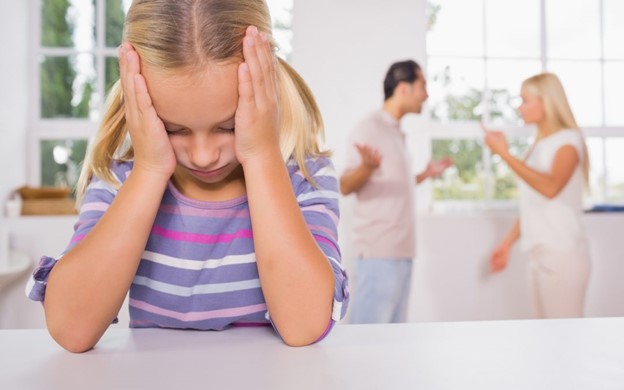5 Ways to Minimize Harm to Children During Divorce


5 Ways to Minimize Harm to Children During Divorce
As family law attorneys, we unfortunately see a lot of conflict and turmoil within families. As attorneys, our goal is always to advocate for our client’s interests. When clients have children involved in their case, a competent family law attorney also focuses on the best interests of the children.
Below, are five ways to support the best interests of your children and minimize the harm to them during your divorce proceeding.
1. Let the children be children. Do not involve the children in the divorce or adult problems. This means, not speaking about your divorce or the issues surrounding it in front of them. You have a duty to facilitate a relationship with your children and the other parent. Unfortunately, many clients call me to discuss (how horrible) their spouse is while their children are in the car with them or within earshot. This behavior is inappropriate.
2. Children are not pawns to be used in the divorce. Children will already face a significant change in their lives, and they do not need a spiteful parent to use them to “get back” at the other parent. An unfit parent and a bad parent are two very different things. If you genuinely have safety concerns, that is one thing, but just because the other parent is not perfect in your opinion does not mean they should not have equal parenting time with them. Experts agree that it is beneficial for children to have a relationship with both parents. Divorce is a lose-lose situation, and using the children as pawns will only worsen the situation.
Another common mistake parents make during divorce is recording the children. Please do not engage in this, judges dislike it, and it is not fair to your children to record them without their knowledge. There are other ways to present concerns about the other parent in court without recording your children. A competent family law attorney can help you with that process.
3. Obtain a therapist for the children. Children have immense feelings surrounding divorce. How will their new family look? Where are they moving to with the other parent? Will both parents still be around? Your children need someone to process their feelings with and with whom is not involved in the situation.
As adults, it has become more common to discuss mental health. But, many adults neglect to recognize that their children may also suffer from similar mental health issues during divorce, like anxiety and depression. Nonetheless, even if your children do not have diagnosed mental health concerns, a therapist’s help is highly beneficial to them during such a life-changing time.
4. Spend quality time with the children. It is not about quantity. Whether you and your soon-to-be-ex agree to 50/50 or not, use the time you have with the children and make them the focus. It communicates that your love will not change even though you and your spouse will no longer be together. Do not use your parenting time to manipulate ongoing litigation. Your children need both of their parents and need them to support each other’s relationship with them.
5. Try not to make any other significant changes. There will already be a lot of change for the children. For instance, one or both parents may have to move, so the kids will already need to adjust to that significant change; hence, if you can avoid changing their schools or other important areas of their lives, that is best. Divorces impact a lot of areas in your life, in addition to the children’s lives. So do the best you can.
In closing, divorces are hard on everyone. But, especially for your children. Follow the tips above to avoid more potential harm to your children and find a family law attorney who works to minimize any potential harm.
Jamie Paine is an associate attorney at Griffiths Law. Her practice focuses primarily on domestic relations matters, including divorce, child custody, and grandparents’ rights. Jamie’s previous years of experience as a prosecutor developed her innate ability to empathize with clients and their children. Jamie’s experience as a prosecutor helps her handle the most complex cases with a tactful strategy to achieve the best results while minimizing the harm to the children in the process.














